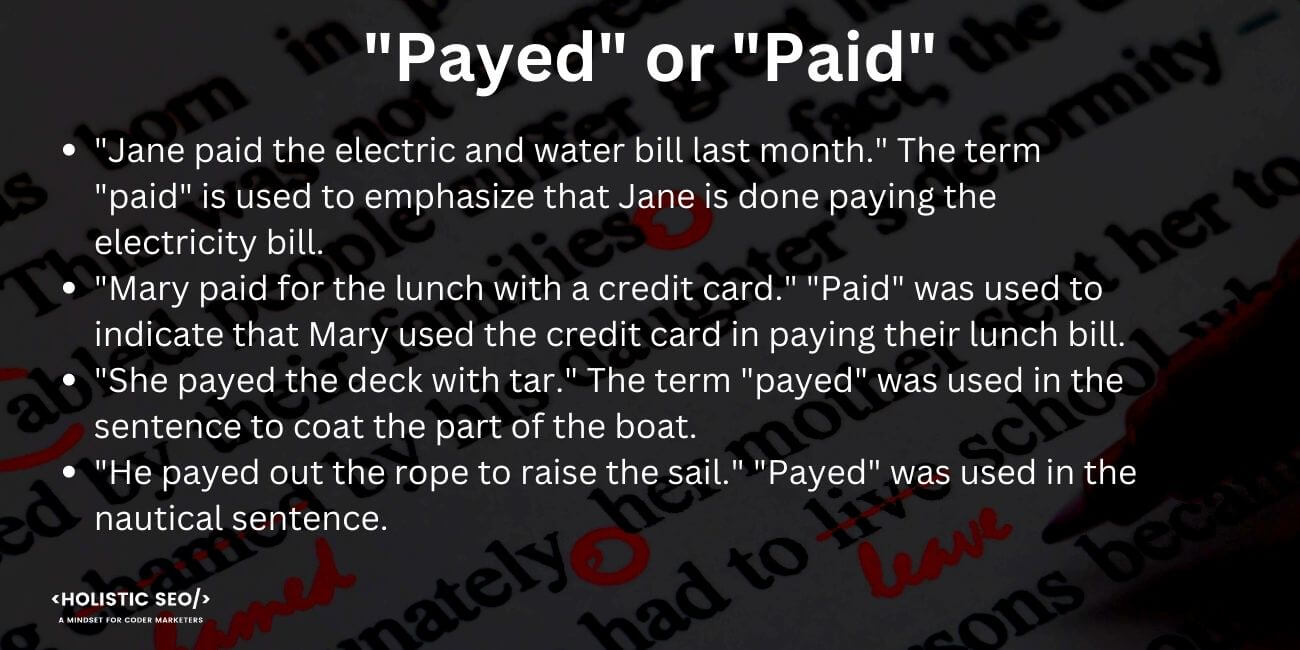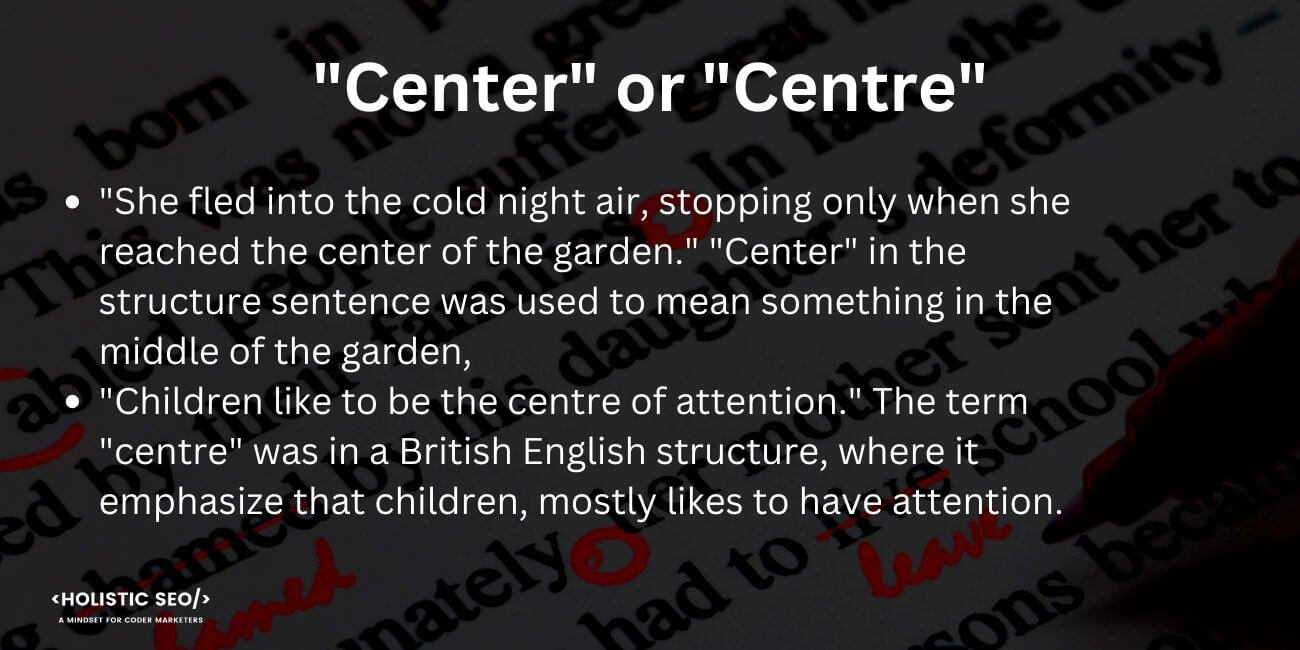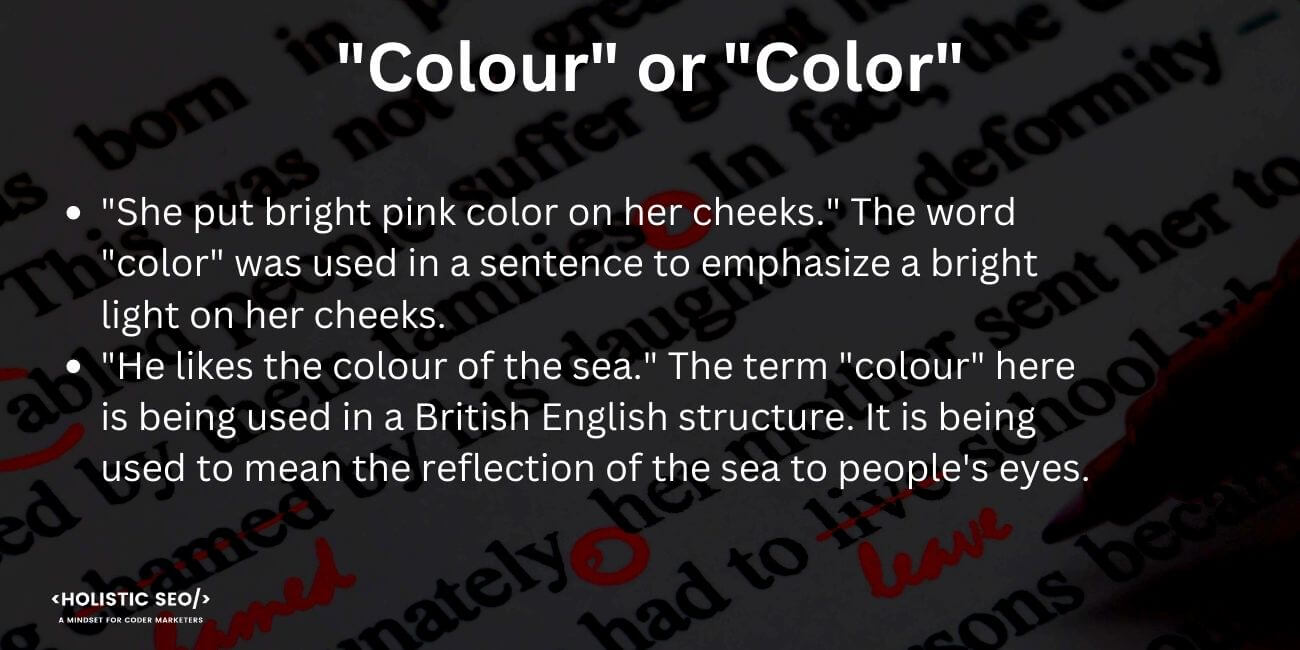The words “paid” and “payed” are both correctly spelled terms that have their own meanings. The word “paid” is the correct form of the verb “pay” when used in the past tense. It is commonly seen in finances and businesses. On the other hand, “payed” is the correct term to use when the verb “pay” is utilized in a nautical context. The word “pay” comes from Latin and was brought into the English language by the Anglo-Norman word “paier.” The word “pay” has been in use since the Roman era. The term “pacify” comes from the Latin verb “pacare,” which comes from the same root. However, in modern usage, “pay” means more than one thing; if a person pays for goods and services, they are essentially exchanging monetary compensation for the acquired items. Meanwhile, the word “pay” is utilized in a different sense in some instances. The word “pay” demonstrates that they are providing their interest in something when someone pays attention. The meanings of the verb “pay” are associated with nautical terms and are particularly prominent. “Pay” refer to a number of different concepts. It refers to the practice of painting joints with a mixture of tar and resin in order to make them watertight. It sometimes means turning the ship so that it faces away from the wind or leeward (pay off) (pay away). The word “pay” refers to the act of loosening a rope or chain to release the tension and go (paying out) in some situations.
Listed below are the example sentences of the words “paid” and “payed.”
- “Jane paid the electric and water bill last month.” The term “paid” is used to emphasize that Jane is done paying the electricity bill.
- “Mary paid for the lunch with a credit card.” “Paid” was used to indicate that Mary used the credit card in paying their lunch bill.
- “She payed the deck with tar.” The term “payed” was used in the sentence to coat the part of the boat.
- “He payed out the rope to raise the sail.” “Payed” was used in the nautical sentence.
What is the Difference between Payed and Paid?
The difference between “payed” and “paid” is the meaning they bring and the context they apply. These two words seem to fall in the same category, but they refer to unrelated things. “Payed” is sometimes misinterpreted as an incorrect version of the word “paid.” However, it does have its own specific definition. The primary definition of “payed” according to reliable dictionaries is “to give slack to a rope” in the simple past tense form of “payed out.” Another definition has nautical origins. The word “payed” is referring to the meaning, “to be covered with tar” in the simple past and past participle tenses. These two nautical meanings are rarely used even writers or speakers have likely never seen or use them in one of their sentences. Whereas the term “paid” is the correct and only simple past tense and past participle form of the verb “pay.” It bears the meaning “to exchange money for a product or a service.”
Do Payed and Paid mean same thing?
No, the words “payed” and “paid” do not share the same meaning. The difference between “payed” and “paid” comes from both the spelling and meaning. The term “payed” is more on maritime-related things. It is a word used in connection with sailing and transport or to coat something with a tar. On the other hand, “paid” is used as a primary term for transactions that involve money and trade. It is used more for financial means or pertaining to return for services rendered; paying outstanding debt.
How to Spell Payed and Paid?
The word “payed” is spelled as “P-A-Y-E-D.” Its main distinguishing factor is that it is spelled with the letters “y” and “e.” Meanwhile, the word “paid” is spelled as “P-A-I-D.” It is a four-letter word that is constructed with the letter “i.” However, these variations in spellings do not change the manner in which they are pronounced. The correct pronunciation of both “payed” and “paid” is “payd.” It is highly essential to familiarize the common sound and spelling of English when starting to speak and learn the language. Checking out the phonetics and recording the correct pronunciation to listen to it are two of the most effective ways to pronounce the words correctly. These methods are extremely helpful to spot mistakes in terms of pronunciation. YouTube’s tutorials are another methods to learn the pronunciation of “payed” and “paid” in a faster and clearer way. Focusing on one accent alone enables beginners to have intuitive skills in pronouncing “payed” and “paid.”
How to Use “Payed” in American English?
The word “payed” must be used to refer to nautical or maritime sentences in American English. It is a past tense and past participle of the verb “pay.” The “payed” word is used in sentences that have to do with ropes and ship hulls. The sentence that contains the meaning of letting out a rope or chain by slackening it is another setting that the word “payed” is used. “Payed” is only applicable in these contexts and is not allowed to be included in finance-related areas as it causes grammar errors and misspellings.
Listed below are some example sentences using the word “payed” in American English.
- They payed out the rope, but it just was not long enough.
- The sailors payed the spar of the boat with grease.
- The crews of the fleet payed their boats to the east in a desperate attempt to avoid the incoming storms.
- A sailor payed the open creases between the planks with hot tar to make the boat seaworthy.
- The captain payed out additional rope for the sails.
How to Use “Paid” in British English?
The term “paid” is used in financial matters in British English. It must be used in sentences that demand the meaning, “act by which one receives something, particularly money.” The word “paid” has something to do with giving or transferring money and visiting or recalling. It is the correct past and past participle tenses of “pay.” “Paid” is a very common word in the business industry, especially when talking about purchasing products or services and returning a debt.
Listed below are the example sentences of the word “paid” in British English.
- All students who haven’t paid their tuition are not able to take the exam.
- He paid him to kill her girlfriend.
- He paid a large amount to bail jail time.
- Johnny paid $500 to each employee.
- She paid her debt in full.
What are the Common Phrase Combinations of “Payed” and “Paid”?
Listed below are the common phrase combinations of “payed” and “paid.”
| Word | Definition | Phrase Combination | Example sentences |
| Payed | The word “payed” is more of nautical origin. The word is concerning sailors or navigation; maritime. | “Payed out” | She payed out the rope to raise the sail. |
| Paid | The word “paid” is used more on financial means or referring to a return for services rendered; to hire for money; or to fulfill a debt. | “Paid off” | She finally paid off her debt. |
What are the Example Uses of “Payed” in American Publications?
Listed below are examples of “payed” in American publications.
- “He payed out the line to the smuggler in the rowboat.”: The example phrase was from the publication of Washington State University by Professor Paul Brians. The phrase is all about the line that was payed out to the smuggler in a rowboat. The example sentence was published during the year of 2016.
- “Pike payed out the hawser, the coxswain eased off the spring; away when the boat, and next moment Pike had Stanley by the hair.” The example phrase was from the book of R.M Ballantyne entitled “The Complete Novels of R. M. Ballantyne: Western Classics, Sea adventure Novels, Action Thrillers and Historical Tales.” The example phrase was all about the journey of the author’s adventure story. The example sentence was released in the year of 2017.
What are the Example Uses of “Paid” in British Publications?
Listed below are examples of “paid” in American publications.
- “HM Revenue & Customs paid out £1.9 million in compensation after sending a firm bankrupt with a tax demand that turned out to be wrong.”: The phrase was from the publication of The Daily Mail. The sentence phrase was all about the £1.9 million compensation paid out by HM Revenue and Customs in compensation for the wrongly accused firm of being bankrupt with a tax. The release date of the publication was during the year of 2016.
- “Tributes have been paid to Garry Marshall, creator of hit US TV series Happy Days, who has died aged 81.”: The phrase was from the publication of the BBC. The phrase is all about a tribute to the creator of the hit US TV series the “Happy Days” named Garry Marshall who died aged 81. The sentence example was published in the year of 2016.
When to use the word “Payed” and “Paid”?
The words “payed” and “paid” must be used when a sentence is describing either nautical or financial topics. The writers must need to consider first the meaning and purpose of these words in a sentence before using them. The word “payed” must be used solely by authors in terms of nautical contexts and maritime concepts. Whereas the word “paid” must and only be used as a past tense and past participle form of the word “pay” when talking about financial aspects. Authors must think about business or ships in deciding whether to use “paid” or “payed” in their sentences. Interchanging these words results in incomprehensible writing which affects the ability of the sentences to convey meaning.
How to Use “Payed” or “Paid” for Content Marketing?
Content marketers use “payed” and “paid” to discuss their maritime or business topics. Content marketing covers a wide range of ideas, which means content writers are tasked to use words that perfectly suit the information they want to send to the audience. A content marketer uses “payed” when trying to express the meaning in nautical terms, while the word “paid” is for financial transactions. It is very easy to recognize which one to choose because “payed” which deals with ships and navigation is spelled with the suffix “ed.” On the other hand, the word “paid” that has to do with money and trading goods has the suffix “id” which replaced the letter “y” from its root word. Interchanging these two words results in grammar errors and misinterpretations by the audiences who try to read or view the content marketing.
How does Accent Differences Affect Search Engine Optimization?
Accents are important in many languages, not just English, and they have a big effect on how well search marketing works. Search results for each distinct accent, suggest (but do not guarantee) that the system distinguishes between the various pronunciations. However, despite the fact that there are some overlaps, each ranking is unique, with the top spots shifting less frequently than the lower items on the first page. The latter is true even when there are some similarities across the rankings. As a direct consequence of it, the algorithm employs a wide array of strategies when dealing with the various methods of spelling. It merely shows that the chances are there and have an impact on multi-regional SEO for savvy marketers. Accents are marks that are placed both above and below existing characters in a textual element in the applicable language. They are sometimes placed between existing characters. Accentuation is a common topic of conversation among mutli-regional SEO guide specialists when discussing the significance of search engine algorithms. Additionally, having a good accent while producing content for search engine optimization is quite vital (SEO). The use of diverse accents for different target audiences is, thus, useful for international search engine optimization (SEO) rankings of the website or the content.
What are the Similar Accent Differences such as “Payed and Paid”?
Listed below are similar accent differences, such as “payed” and “paid.”
- “Stair” and “stare”: The phrases “stare” and “stair” are two examples of words that are synonymous with “paid” and “paided.” The terms are pronounced similarly yet have entirely distinct meanings. The term “stair” refers to the series of steps that are used to ascend from one point at the top to another level of that same structure. To “stare” means to fix one’s gaze steadfastly, attentively, or vacantly on a person or object. On the other hand, when used as a noun, “stare” refers to a prolonged look given with the eyes wide open and without blinking.
- “There” and “Their”: The words “there” and “their” are two words similar to the words “payed” and “paid.” The words are pronounced similarly yet have completely distinct meanings and applications. “There” means “at that location.” The possessive pronoun “their” is used to indicate ownership of an idea
- “Rain” and “Rein”: The words “rain” and “rein” are similar to the words “payed” and “paid.” The pronunciation of these terms is the same, although they are spelled differently. The term “rain” refers to any form of precipitation that originates in the atmosphere. Meanwhile, a “rein” is a long, thin sharp instrument that is utilized to control a horse.
- “Plane” and “Plain”: The words “plane” and “plain” are similar to the words “payed” and “paid.” The words are pronounced in exactly the same way, but their meanings are completely different. The word “airplane” is commonly shortened to “plane,” and vice versa. On the other hand, to be “plain” means to be unadorned or to have a straightforward appearance.
- “Pair” and “Pare”: The word “pair” and “pare” are similar to the words “payed” and “paid.” These terms sound very similar to one another yet have completely distinct meanings. The noun “pair” is used to describe a set of two items. The word “pare,” on the other hand, means to trim or cut down on something.
- 48 Online Shopping and Consumer Behavior Statistics, Facts and Trends - August 22, 2023
- B2B Marketing Statistics - August 22, 2023
- 38 Podcast Statistics, Facts, and Trends - August 22, 2023


